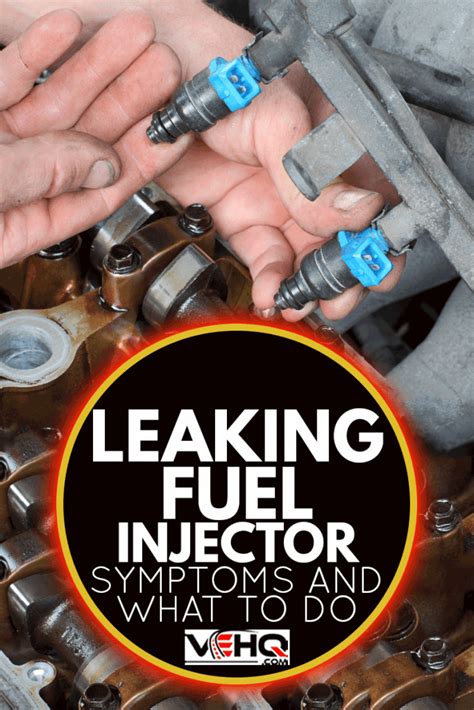Fuel Injector Leak: How To Prevent and Repair
Fuel injector leaks are a serious problem that can lead to decreased fuel efficiency, poor engine performance, and even catastrophic engine damage. Understanding the causes, prevention strategies, and repair methods is crucial for maintaining your vehicle's health and longevity. This comprehensive guide delves into all aspects of fuel injector leaks, equipping you with the knowledge to address this issue effectively.
What Causes Fuel Injector Leaks?
Several factors contribute to fuel injector leaks. Identifying the root cause is paramount to effective prevention and repair. Common culprits include:
- Worn-out O-rings and seals: These small rubber components seal the injector to the fuel rail and the engine block. Over time, they degrade due to exposure to fuel and extreme temperatures, leading to leaks.
- Clogged injectors: Buildup of deposits and contaminants within the injector can obstruct fuel flow, increasing pressure and potentially causing leaks at the seals or injector body.
- Corrosion: Exposure to moisture and road salt can corrode the injector body and its connections, compromising the seals and leading to leaks.
- Damaged injector body: Physical damage from impacts or improper installation can crack or damage the injector body, resulting in fuel leakage.
- High fuel pressure: Excessive fuel pressure, often due to a faulty fuel pump or regulator, can overstress the injector seals, causing them to fail.
- Improper installation: Incorrect installation of fuel injectors during maintenance or repairs can damage seals and lead to leaks.
How to Prevent Fuel Injector Leaks
Proactive maintenance significantly reduces the likelihood of fuel injector leaks. Here are some key preventative measures:
- Regular fuel filter changes: A clogged fuel filter increases pressure within the fuel system, stressing the injectors. Replacing the fuel filter according to the manufacturer's recommended schedule is crucial.
- Use high-quality fuel: Using low-quality fuel containing excessive contaminants can clog injectors and accelerate seal degradation. Opt for fuel from reputable stations.
- Avoid aggressive driving: Consistent hard acceleration and high RPM driving can increase the stress on the fuel injectors and their seals, promoting wear and tear.
- Regular vehicle maintenance: Scheduled maintenance checks by a qualified mechanic can identify potential issues early on, preventing them from escalating into major problems. This includes inspections of fuel injectors, seals, and fuel lines.
How to Repair Fuel Injector Leaks
Repairing fuel injector leaks typically involves replacing faulty components. However, the complexity of the repair varies depending on the nature of the leak and its location.
- Replacing O-rings and seals: This is often the simplest repair, typically involving removing the fuel injector, replacing the worn seals, and reinstalling the injector. This can sometimes be a DIY project, but caution is needed to avoid damaging the injector or surrounding components.
- Cleaning or replacing clogged injectors: If the injector is clogged, cleaning it with a specialized injector cleaner may resolve the issue. In severe cases, replacement might be necessary.
- Replacing the fuel injector: If the injector body is damaged or the leak originates from a fault within the injector itself, replacement is the only viable solution.
Important Note: Working with fuel injection systems requires caution. Fuel is flammable and potentially hazardous. If you are not comfortable performing these repairs yourself, it's always best to seek professional assistance from a qualified mechanic.
What are the signs of a fuel injector leak?
Recognizing the symptoms of a fuel injector leak is essential for prompt action. Common indicators include:
- Rough idling: A rough or erratic idle is often a sign that fuel injectors aren't functioning properly.
- Decreased fuel economy: A noticeable drop in gas mileage can indicate a fuel leak.
- Fuel odor: A strong smell of gasoline around the engine bay might signal a leak.
- Engine misfire: A misfiring engine is often associated with faulty fuel injectors.
- Check engine light: The illuminated check engine light, often accompanied by a diagnostic trouble code (DTC), can point to fuel injector problems.
How much does it cost to repair a fuel injector leak?
The cost to repair a fuel injector leak can vary significantly depending on the cause, the extent of the damage, and the labor costs in your area. A simple repair involving replacing O-rings might cost a few hundred dollars, while a complete fuel injector replacement could range from several hundred to over a thousand dollars per injector.
Can I drive with a fuel injector leak?
Driving with a fuel injector leak is generally not recommended. The leak can lead to fuel loss, potential engine damage, and even fire hazards. It's crucial to address the problem promptly.
This guide provides a comprehensive overview of fuel injector leaks. Remember, preventative maintenance is key, and seeking professional assistance when needed is crucial for ensuring your vehicle's safety and performance.

